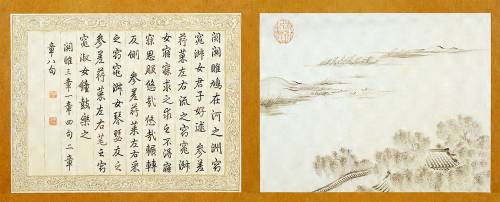<html>
<div style="font-family: Chalkduster; font-size: 13pt; color: #fff;">
<ul>
<li> <a href="http://www.camcc.org/">Home</a> + <a href="http://www.camcc.org/events">Events</a>
</li><li> <a href="http://www.camcc.org/about/Chinese-classics">Chinese Classics</a>
</li><li> Reading Groups
<ul>
<li> <a href="http://www.camcc.org/reading-group"> Chinese </a>
</li><li> <a href="http://www.camcc.org/reading-group/en/">English<sup>beta</sup></a>
</li></ul>
</li><li> <a href="http://www.camcc.org/discussion-group/">Discussion Grp.</a>
</li><li> <a href="http://www.camcc.org/tea-party">Tea Ceremony</a>
</li><li> <a href="http://www.camcc.org/tea-yoga">Tea Yoga</a>
<!--
</li><li> <a href="http://www.camcc.org/other-activities">More Activities</a>
-->
</li><li> <a href="http://www.camcc.org/blog/">Blog</a> + <a href="http://www.camcc.org/links">Links</a>
</li><li> <a href="http://www.camcc.org/about/">About Us</a>
<!--</li><li> <a href="http://www.camcc.org/contact">Contact Us</a> -->
</li><li> <a href="http://www.camcc.org/internal/home">Internal</a>
</li></ul>
</div>
</html>
----
[[president@camcc.org|Email us]]. Or follow us
on [[http://www.facebook.com/groups/182337131809002/|{{facebook.png?32}}]] [[http://page.renren.com/601199149|{{renren_logo.jpg?32}}]] [[http://blog.sina.com.cn/u/1965219823|{{wordpress.png?32}}]]
<html>
<div style="margin-top:-19px">
<div style="width: 22%; float: left; text-align:center">
<a href="http://www.camcc.org">
<img src="http://www.camcc.org/_media/logo-经典方篆-roften.png" width="145" height="145" alt="Camcc" />
</a>
</div>
<div style="width:78%; height:145px; float:right; margin-top: 0px; border-bottom:solid 5px #000000;">
<div style="width: 3%; float: left; margin-top:40px;"></div>
<div style="width: 67%; float: left; font-size: 115%; margin-top:15px;">
<h1>
Cambridge Chinese Classics</br>
剑桥中国传统文化研习社
</h1>
To study, practice and promote Chinese classics
</div>
<div style="width: 30%; font-size: 80%; margin-top: -10px; float: left;">
<div style="height: 130px;width: 100%;float:left">
</html>
**Coming events:**
{{iCalendar>https://www.google.com/calendar/ical/cam.chineseclassics%40gmail.com/public/basic.ics#from=today&previewDays=30&showEndDates=1&&numberOfEntries=1&showAs=list}}
<html>
</div>
<div style="height: 20px;width: 100%;float:left">
Join our <a href="https://lists.cam.ac.uk/mailman/listinfo/soc-camcc">mailing list</a>
</div>
</div>
</div>
</div>
<style>
#dokuwiki__aside {
//border-right: dashed 1px black;
border-right: none;
}
.dokuwiki .wrapper {
border-bottom: solid 1px black;
}
blockquote {
border-left: none !important;\\2px solid #8cacbb;
padding-left: 0.6em !important;
}
div.dokuwiki div.comment_wrapper { background-color: transparent !important;}
</style>
</html>
Sidebar
Shijing 诗经
Note: also known as the Classic of Poetry or the Book of Odes.
Reading time: 2013 – 2013
 Shijing (The Classic of Poetry, or the Book of Odes) is the earliest existing anthology of poetry in China. It comprises 305 poems dating from the beginning of the Western Zhou period (1046–771 BCE) to the mid-Spring and Autumn period ( approx. 771 - 476 BCE ). This also gives it another name “The Three Hundred Poems”. Shijing is one of the Five Classics of Confucianism, which is partly a result of the official adoption of Confucianism as the guiding principles of Chinese society in the Western Han dynasty(206 BCE - 24 AD). The poems mostly originated from areas along the yellow river, but most of the authors can not be identified.
Shijing (The Classic of Poetry, or the Book of Odes) is the earliest existing anthology of poetry in China. It comprises 305 poems dating from the beginning of the Western Zhou period (1046–771 BCE) to the mid-Spring and Autumn period ( approx. 771 - 476 BCE ). This also gives it another name “The Three Hundred Poems”. Shijing is one of the Five Classics of Confucianism, which is partly a result of the official adoption of Confucianism as the guiding principles of Chinese society in the Western Han dynasty(206 BCE - 24 AD). The poems mostly originated from areas along the yellow river, but most of the authors can not be identified.
Despite various statements (such as royal officials collecting songs or Confucius editing and abridging poems) on the origin of Shijing, it is generally acknowledged that Shijing are collected by dedicated governmental officers in Zhou Dynasty, then edited and composed with music and dance. Confucius also participated this procedure in a certain extent.
Shijing is composed of three parts: Feng, Ya and Song. Feng is the most valued part or essence of Shijing, mainly due to its description of the customs, life ( like love and marriage) and other aspects of the society. 15 states are included. The name Fend (wind) itself is a metaphor by comparing education from the government and the feedback from public with wind. Ya is said to be the classical music in the capital area of the Zhou Empire. 105 poems are included in this part. Song consists the songs that the emperor or governors used in events like offering sacrifices to gods or ancestors. It elaborates the achievement of the governing classes. 40 poems are included.
The exact meanings of the poems in Shijing are very difficult to trace due to the long time passed. It is regarded as “minor words, but in-depth meanings” by Confucianism, however some modern scholars ( such as Hu Shi, etc) doubt this over-interpretation of Shijing, saying it is not the 'bible' of poems, merely a literature masterpiece. What Shijing really infers lies on the understanding and interpretation of each reader.
Text
Text in Chinese || Poems Read (Note: Shijing is an unfinished text.)
Page Tools
User Tools
<html>
© Cambridge Chinese Classics, 2012 - 2017
<script type="text/javascript">
var _gaq = _gaq || [];
_gaq.push(['_setAccount', 'UA-27605058-1']);
_gaq.push(['_trackPageview']);
(function() {
var ga = document.createElement('script'); ga.type = 'text/javascript'; ga.async = true;
ga.src = ('https:' == document.location.protocol ? 'https://ssl' : 'http://www') + '.google-analytics.com/ga.js';
var s = document.getElementsByTagName('script')[0]; s.parentNode.insertBefore(ga, s);
})();
</script>
</html>